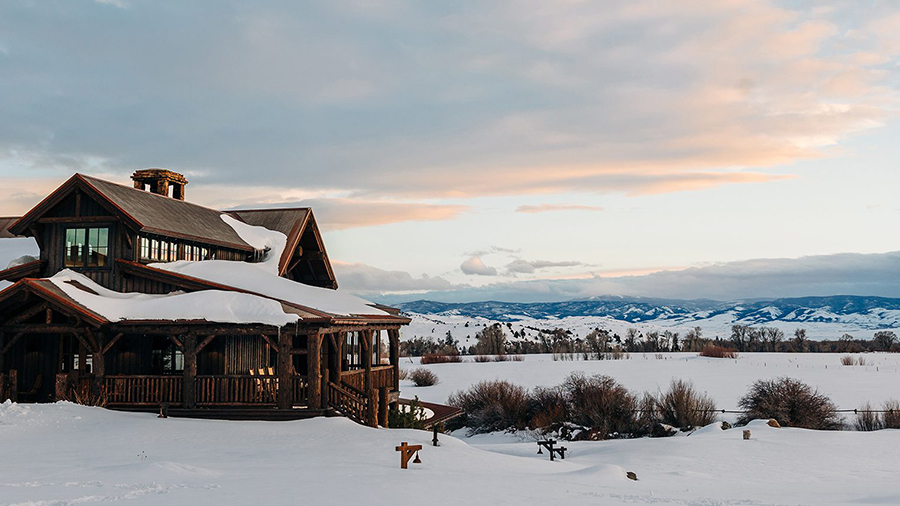Destimetrics is reporting that season-to-date occupancy trended down at the nation’s western-based winter resorts this year through December 31, despite good snow conditions across much of the region. The Business Intelligence platform for Stowe-based Inntopia is reporting findings from participating properties in 17 western resorts, noting the environment feels a lot like last season.
The company’s latest report reported that November’s healthy booking pace slowed in December “as consumer confidence wavered even though widespread snowfall in most regions offered a more enticing on-slope product than last December.”
December Rates Moved up; Occupancy Slipped
According to Desimetrics, as rates went up 2.9 percent for the month compared to December 2023, occupancy fell 2.3 percent, noting the awkward holiday timing as the reason for the decline. However, the firm also alluded that lingering price sensitivity could have affected the data. The slight shift led to aggregated revenues up 0.5 percent compared to last December.
Remaining Months of Winter Season Hold Steady
Winter lodging data that included both in-the-bank actuals for November and December and on-the-book reservations for January through April showed that the full winter occupancy up 1.2 percent compared to last year, with occupancy declining for the first three months of the season while February, March and April are posting increases ranging from 3.5 percent for April to a 6.5 percent increase for February.
The average daily rate (ADR) for the winter continues to show slight variation from last year, with the seasonal average up 1.6 percent and minor gains in five of the six months. Only March shows slightly softening rates.
“Internally, we are describing this month as ‘ho-hum’ but in a good way,” offered Tom Foley, senior vice president of Business Intelligence for Inntopia. “While snowfall has been appreciably better than last year which almost always helps trigger more bookings, there was definitely some wobbling in the economic indicators last month, particularly in consumer confidence, and that can have an impact on the decision to book and at what rate and for the length of stay. So, given that bit of economic uncertainty, we consider the month a ‘win’ for properties as they continue to strategically manage rates to keep revenue positive.”
Economy: Notable Backsliding in December
The Dow Jones Industrial Average (DJIA) dropped 5.3 percent in December, nearly erasing November gains while posting only the third monthly loss of 2024 and the largest one since September 2022.
U.S. markets got a jolt from the new presidential administration’s proposed changes to international trade policy, tariffs explicitly on imports that could lead to higher consumer prices. Slowing in interest rate reductions also triggered consumer concerns.
“Declines on Wall Street can have a significant impact on consumers when they see savings and retirement accounts lose money when market indices are down, and that shakes confidence,” observed Foley.
The Consumer Confidence Index (CCI) declined 7.2 percent in December, the most significant decline since August 2021, when COVID-19 cases peaked, despite the widespread distribution of vaccines.
Consumers cited employment and earnings and anticipated higher inflation in 2025 as primary reasons for their lower confidence. Participants over 35 experienced sharper declines than respondents under age 35. In contrast, the Consumer Sentiment Index (CSI) from the University of Michigan increased 2.2 points, although respondents indicated concern over the same issues cited in the CCI.
“Declines or gains in confidence have historically been shown to have a significant impact on room rates and travel prices—when confidence slips, so does tolerance for rising rates,” noted Foley.
The Unemployment Rate* finished the year dropping from 4.2 to 4.1 percent, with employers adding 256,000 new jobs during December.
By The Numbers
Higher rates offset lower occupancy for seasonal bookings made in December. Consumers booked 1,610 fewer rooms in December for the season, but the higher rates translated to an additional $3.8 million in aggregated revenue.
Revenue for the season is also up, with $738.7 million booked for Winter 2024/25 among participating properties, representing a $16.8 million increase over last year.
“December was a fairly unremarkable month as rates and occupancy continued to be mostly stable,” Foley explained. “But with widespread and abundant snowfall, we had hoped to see more bookings and occupancy in December, despite the challenges of awkward school holidays which were expected,” he continued. “Great snowfall is always essential for a successful ski and snowboard season, and we’re seeing that, but economic indicators and consumer uncertainty are causing a bit of hesitation about bookings as financial markets—and consequently consumers—rethink the short-term outcomes of new economic and political policies,” he concluded.
*DestiMetrics tracks lodging performance in resort destinations. Each month, the forward-looking reservation data is compiled and aggregated with individualized results for each region and distributed monthly to subscribers at participating resorts. Approximately 28,000 lodging units in 17 mountain destinations across Colorado, Utah, California, Nevada, Wyoming, Montana, and Idaho contribute to the data pool and represent an aggregated 55 percent of all available rental units in those regions. Results may vary significantly among/between resorts and participating properties.















